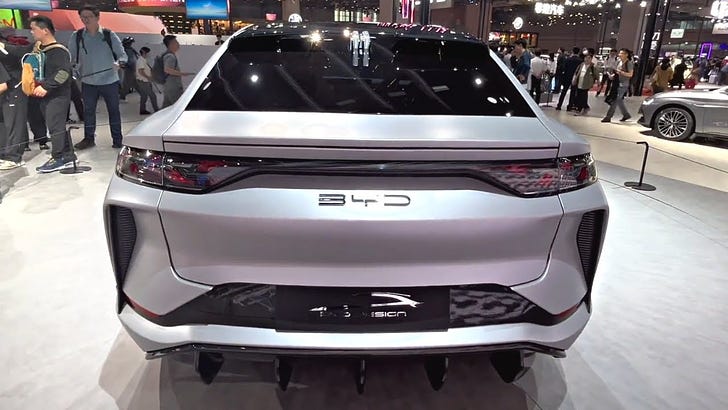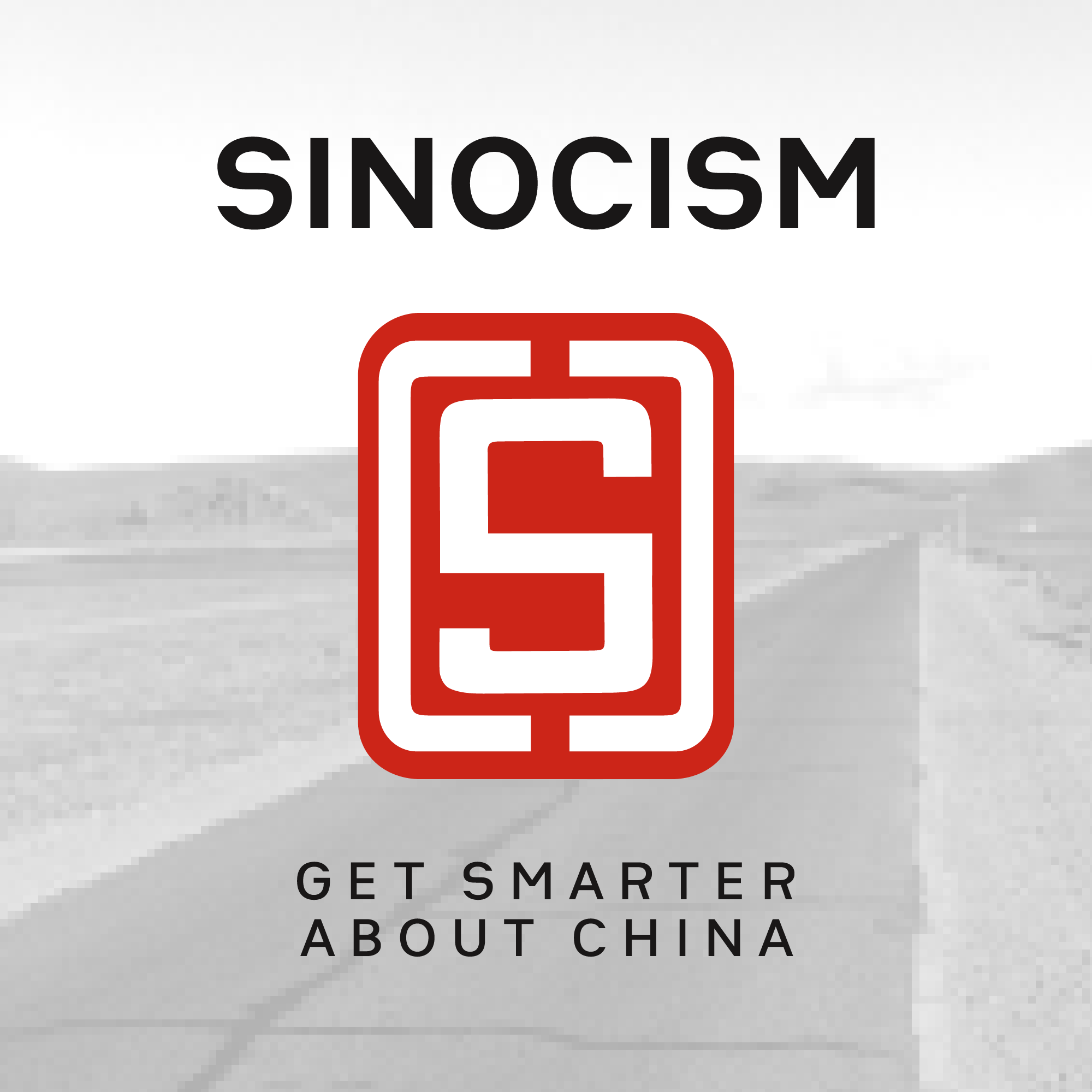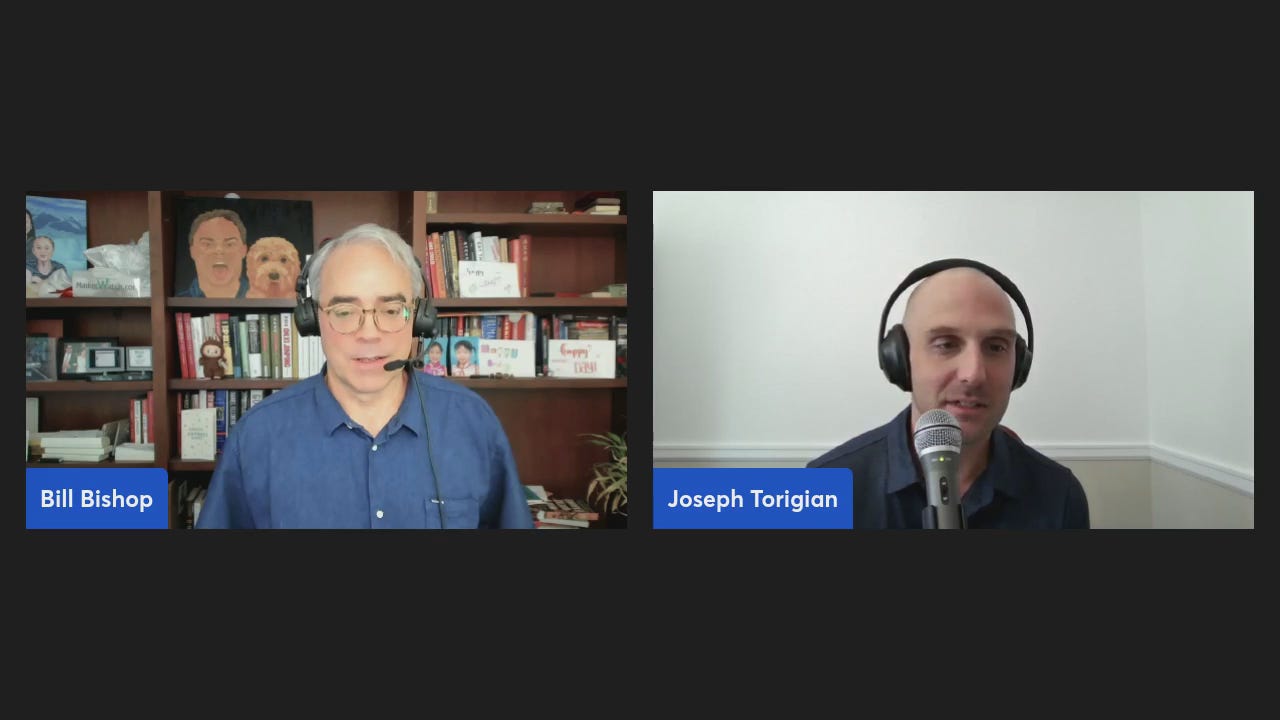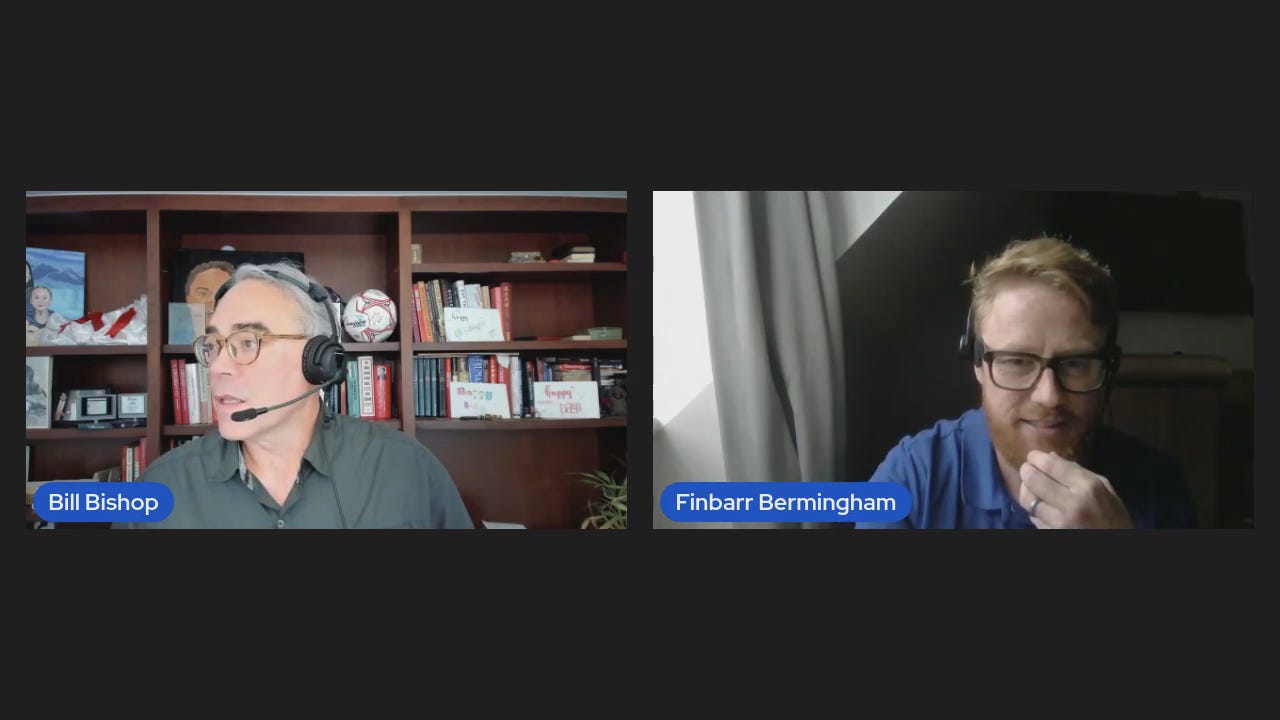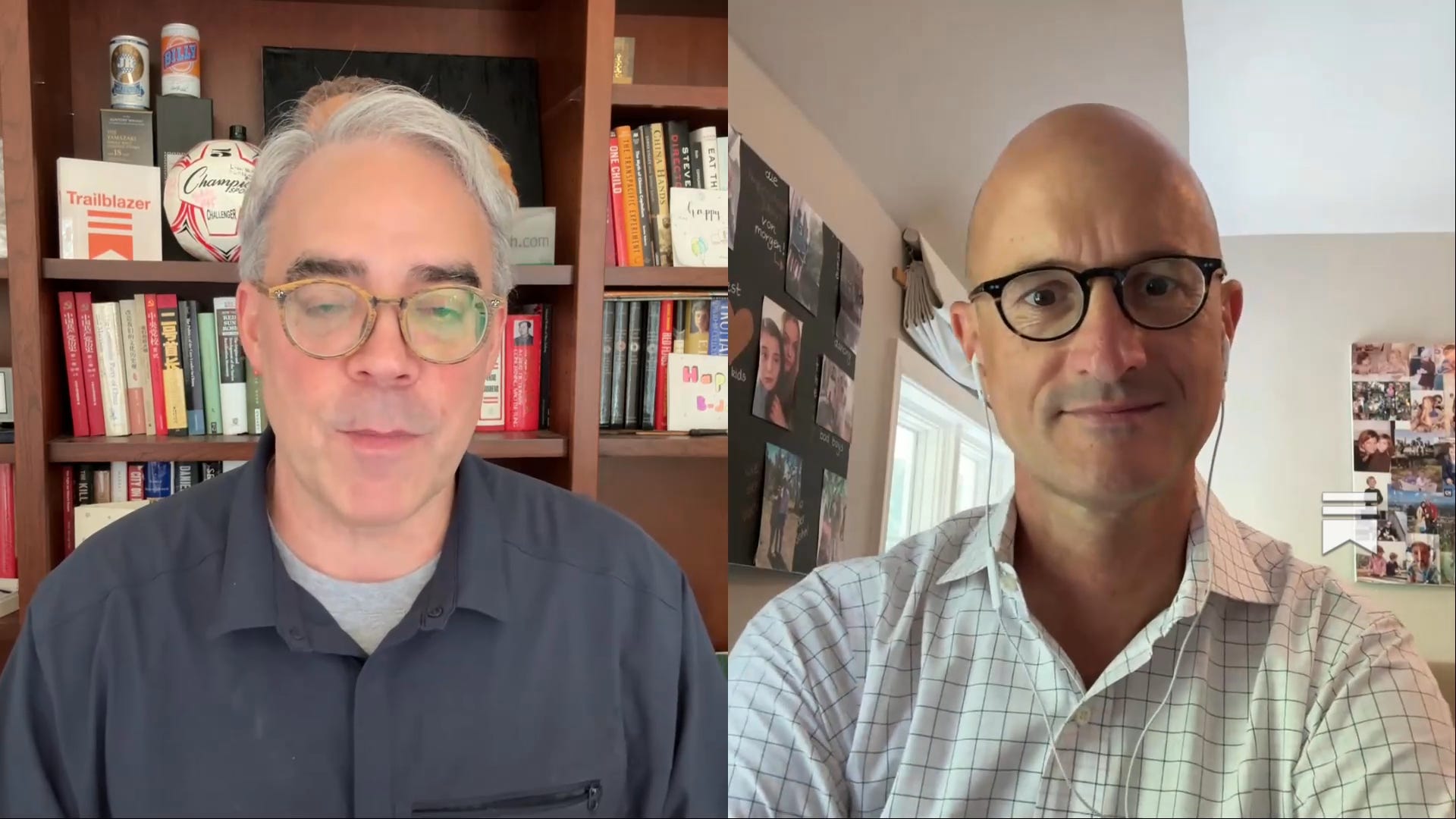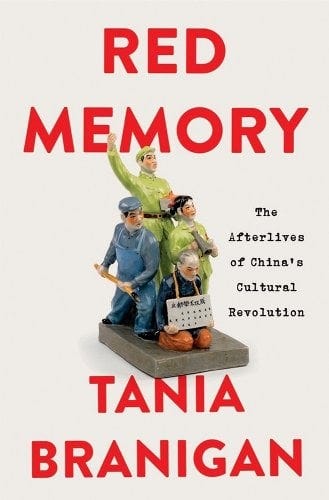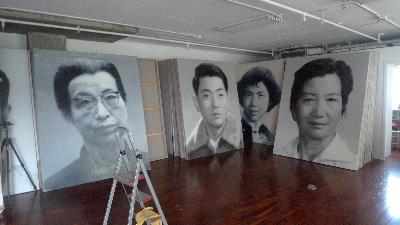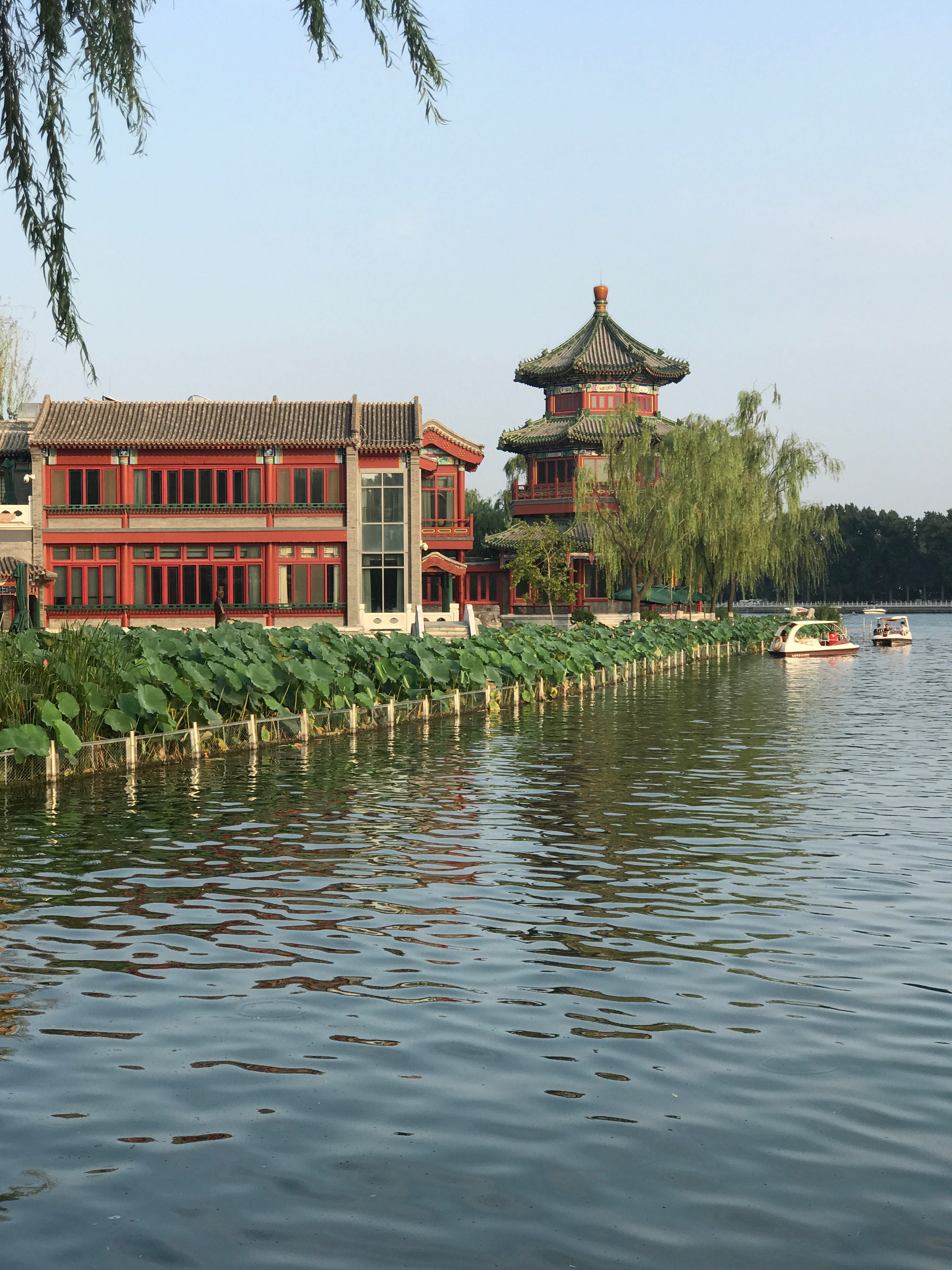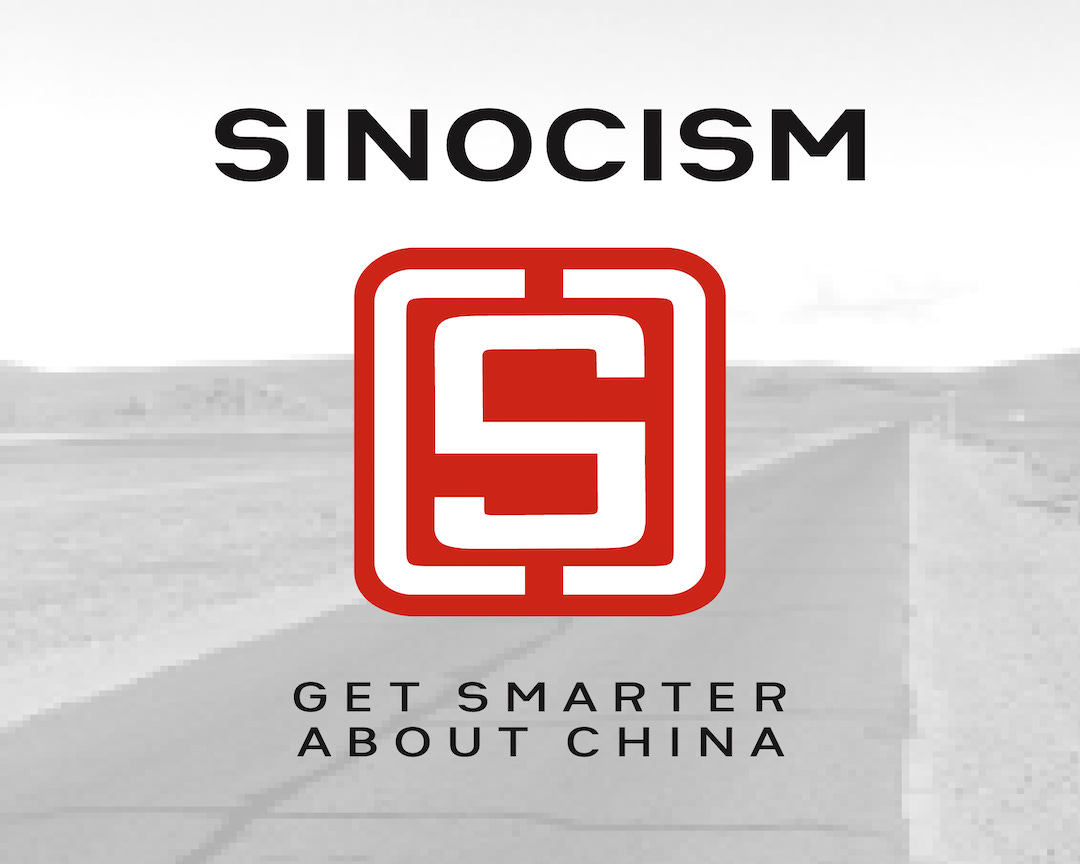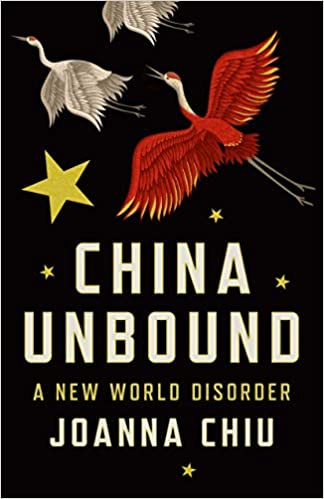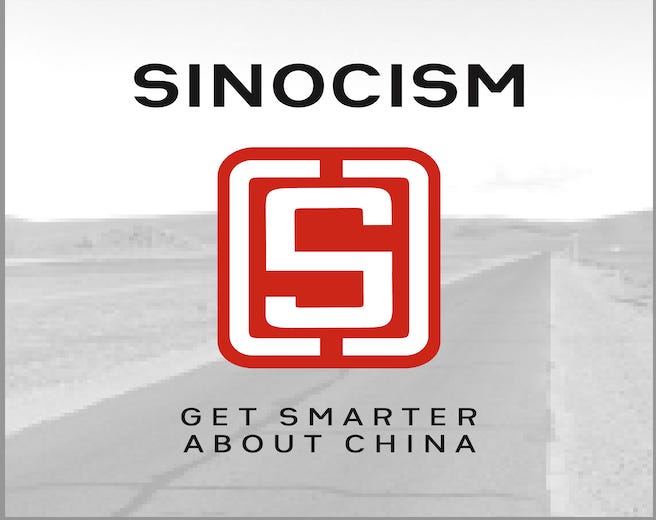Sinocism Podcast: Tu Le of Sino Auto Insights on the rise of the China vehicle industry
Description
In this episode of the Sinocism Podcast Bill speaks with Tu Le, Founder and Managing Director of Sino Auto Insights. Tu recently attended the Shanghai Auto Show. We discuss the rise of China EVs both inside China and increasingly in other countries, and especially of BYD, why the legacy foreign auto manufacturers are struggling and will continue to struggle in China, and how “China EV Inc” will win share in many overseas markets. We also discuss Tesla’s positioning in the PRC and some if its challenges ahead, especially from BYD, both inside the PRC and in other markets around the world.
Links:
Doug DeMuro reviews the BYD Han:
The BYD Song L:
Transcript:
[00:00:00 ] Bill: Welcome back to the Sinocism podcast. Today we're very lucky to have Tu Le to talk about the PRC auto industry. Tu is the founder and managing director of Sino Auto Insights. Tu recently relocated to Detroit after many years in Beijing. Tu and his team at Sino Auto Insights do advisory and market research work for companies and investors who want to understand the PRC auto industry and especially the rise of Made in China EVs. He also writes an excellent weekly newsletter and does a podcast and occasional or weekly, I think, , Twitter spaces. I will put links to those in the show notes. Tu, welcome and thanks for joining the podcast. Great to see you again.
[00:00:36 ] Tu Le: Bill first. , thanks for having me. Last time we saw each other, I think we were at Central Park having a coffee at Jamaica Blue. That quite a few years ago.
[00:00:47 ] Bill: Tu and I are old friends from, from Beijing. , so, and, and it's, it's good to see you and, , nice to have you, , back in the US and Detroit. , Detroit is home, right. But it's also a great place to be if you're working on the auto industry.
[00:00:59 ] Tu Le: Yeah. It's kind of ground zero for what's happening in the EV and mobility space. So, so it's, it's a great time to be back.
[00:01:05 ] Bill: I've been really wanting to get you on the podcast for a while and I got finally motivated to do so after reading, what you were talking about from the Shanghai Auto Show, which you were, you, you just came back from China, I think, like a week ago, right? You're there for Tu or three weeks, , and nice to be able to travel again, right?
[00:01:21 ] Tu Le: Oh, man. It was, , it was kind of, , surreal because the last time I traveled internationally from China, we were just, we had bags packed and everything, so a little bit different.
[00:01:35 ] Bill: Yeah, no, much, much better. , and I think, you know, the Shanghai Auto Show clearly rocked a lot of people's worlds, and so Tu is going help us understand what's going on, and that's why, you know. So I wanna start though, first with, if you could just tell us a little bit about yourself and how you ended up in China, working in the audio industry and, and what your firm does.
[00:01:54 ] Tu Le: Okay, sure. So, as you'd mentioned, I grew up in Detroit, actually in Pontiac, Michigan.. In my entire family, all eight of us have worked. In the automotive space, along with our significant others. And, my first job, actually out of undergrad at Michigan State University was working at GM where the recently canceled Bolt is manufactured.
[00:02:16 ] Tu Le: After grad school I moved to Silicon Valley, worked there for about six, seven years., and I met a girl and chased her over to Beijing actually. So I quit my Silicon Valley job and what I thought was going be a three or four year commitment ended up being 13 years. I had moved to Shanghai, took a job with Ford in Lujiazui actually for about a year, and then moved back to Beijing due to some family stuff going on.
[00:02:46 ] Tu Le: And, then I started freelance consulting and worked at a couple of Chinese e e e-commerce startups in Beijing. And then I got pulled over to do some freelance consulting because one of my, friends. Had found out that I had some automotive background and, you know, Mercedes, BMW and Audi, they're all located, and VW group are located in Beijing.
[00:03:09 ] Tu Le: And so I started Sino Auto Insights because, you know, right around 2014, 2015, where, you know, at ParkView Green, Tesla had opened the first retail store for China. And so I really started seeing, a shift in what was going on in the space and, a lot of articles and a lot of bad takes. So I started the newsletter, started the consultancy, because of my experience in Detroit, Silicon Valley and China with startups.
[00:03:37 ] Tu Le: It's been quite an adventure and we, what we do is we, , , , we're a management consultant consultancy that helps mobility companies enter markets, develop products, raise capital and build their brand and work with them to find customers. And so we were focused primarily in the China market, but now we've kind of expanded because China, EV Inc.
[00:04:05 ] Tu Le: Has expanded. And with the Inflation Reduction Act, we've recently opened a Detroit office and are, are starting to help companies here expand into the EV space and the mobility space.
[00:04:20 ] Bill: Oh, that's fascinating. And I just, just to your, like what you mentioned about the, Tesla dealership at, or the, the showroom at, at the phone call the Parkview Green. ,I actually, you know, we both, we lived near there. Our, my kids went to school next to it, I think years went to Fangcaido, right.
[00:04:35 ] Tu Le: That's right, exactly. I live right next door,
[00:04:37 ] Bill: you go.
[00:04:38 ] Bill: Right. And so, and so I went there right after it opened with a friend with a, with a friend of mine from Henan who had like, he had a a, a couple of 730s and a BMW very, you know, had like cars had, could buy what he wanted. And it was really fascinating because he wanted to buy a model S right early on.
[00:04:54 ] Bill: And he got in there and he's like, God, it's like, it's, it's just so bare bones that does not, you know, so he didn't buy it because he's just like, this is like, not this just, I wanted like a German luxury car.
[00:05:06 ] Tu Le: and it was over $120,000
[00:05:08 ] Bill: No, they were, they were quite expensive. I mean this was early, early days. Right. And obviously Tesla's done well since then, but it was just really interesting how when they entered the market, they were not at all focused on, I mean, they were, they were, they had a, a brand image, but actually inside the cars, the way they were appointed was not near what sort of Chinese luxury buyers were used
[00:05:29 ] Tu Le: right, and, and I would venture to guess, your friend was probably a little bit older,
[00:05:35 ] Bill: Hey. It was, it's like 40 at the time.
[00:05:37 ] Tu Le: Okay. So he is pretty young because the digital natives, and, and we'll get into this a little bit later, but the digital natives are the ones that are really looking at the safety and the connected vehicle.
[00:05:48 ] Bill: And the, and the screens that make it look like you're, like at a currency trading station, right.[00:05:52 ] Tu Le: oh, yo. Yeah.
[00:05:53 ] Bill: I want to jump to something that you wrote in your, your latest, , newsletter, , which is excellent. Everyone subscribed to it. And I will link to it, as I said earlier.
[00:06:04 ] Bill: , but the one, the one about the Shanghai Auto Show, so you wrote. In 20, 30, 50 years from now, we'll likely point to Aha Shanghai TW 2023 as that watershed moment. It's the moment most media outlets acknowledge that the foreign legacies that dominated the China auto market for the last 35 years or so have been overtaken and unable to compete with the EV products launched by China, EV, Inc.
[00:06:31 ] Bill: Within just the last few years, the legacies haven't given up by any means, but the writing is on the wall. BYD overtook Volkswagen as China's best selling brand in, first quarter 2023, the first time it's ever happened, BYD has no plans of giving up that title for the foreseeable future and are likely only only going to pull away even further.
[00:06:53 ] Bill: China will never be like it was again, where brand heritage and being foreign gave you an advantage.” So if you're a foreign auto manufacturer…the sense I got from talking to some people reading the media was the foreign, some of the foreign execs who went to the auto show were shocked.
[00:07:16 ] Bill: And so like, like what do they do? And more importantly, how did they fall behind so quickly? Right? I mean, they have had massive operations in China for decades. Didn't they have a flow of information that helped them understand how the market was changing?
[00:07:30 ] Tu Le: So there's a few different things going on here, Bill. I think that the fact that most executives outside of the top management haven't been able to travel to China in three and a half years really limited their ability to kind of see and feel the differences and the changes. I was in China for most of that three and a half years.
[00:07:56 ] Tu Le: And I saw the proliferation of green plates over the last few years. ,
[00:08:01 ] Bill:

